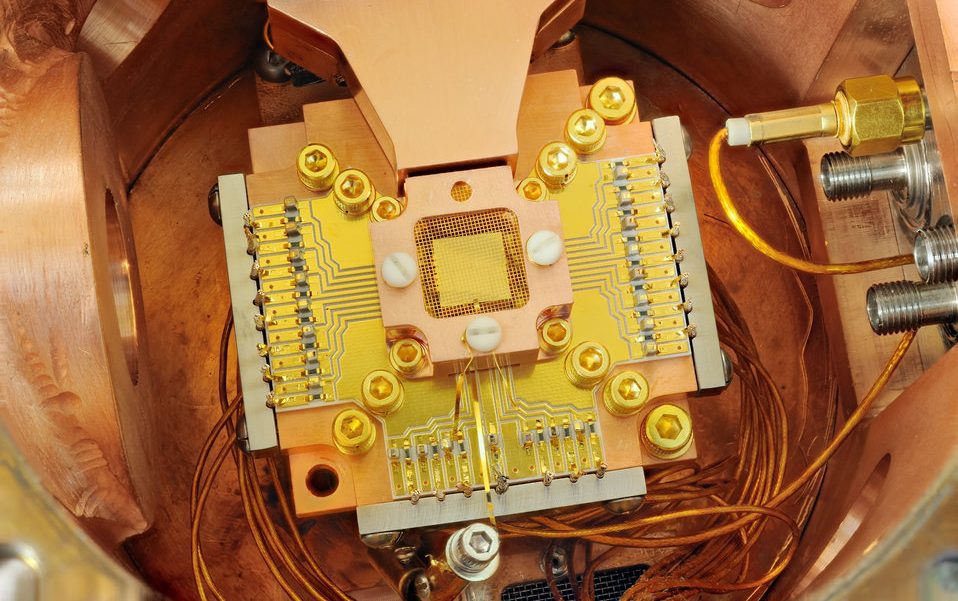Competitors Question Claim as Google Declares Start of Quantum Era
Google may have reached a milestone last week that places it in the ranks of breakthroughs such as the first flight by the Wright Brothers, or the launch of the personal computer. Or perhaps not.
In a research paper published online, Eleanor G. Rieffel of the NASA Ames Research Center said researchers had achieved “quantum supremacy,” a major early milestone in the field of quantum computing. The paper appeared on a NASA website this week before being removed, according to a story in the Financial Times on September 20. The paper claimed that its Sycamore processor was able to perform a calculation in three minutes and 20 seconds that would take Summit, the most advanced classical computer, 10,000 years to do.
An insider told Seeflection that the paper was taken down from the NASA website due to pressure from the National Security Administration, which didn’t want to share details with foreign countries. Seeflection found the research paper, and it can be read here. It is yet to be peer-reviewed.
The research team includes scientists from nine entities: Google Research, Mountain View, CA; Department of Electrical and Computer Engineering, University of Massachusetts Amherst, Amherst, MA; Quantum Artificial Intelligence Lab. (QuAIL), NASA Ames Research Center, Moffett Field, USA; Institute for Quantum Information and Matter, Caltech, Pasadena, CA; Department of Physics, University of California, Santa Barbara, CA; Friedrich-Alexander University Erlangen-Nurnberg (FAU), Department of Physics, Erlangen,Germany; Quantum Computing Institute, Oak Ridge National Laboratory, Oak Ridge, TN; Institute for Advanced Simulation, Julich Supercomputing Centre, Julich, Germany; Department of Physics, University of Illinois at Urbana-Champaign, Urbana, IL.
The term “quantum supremacy” refers to how quantum computers will be able to solve problems classical computers cannot. While this initial demonstration shows what the primitive quantum computers can do in focusing on a single theoretical problem, they have a long way to go to outperform the most sophisticated super computers, at least one rival said: IBM.
Google, IBM, D-Wave Systems, Alibaba, Microsoft, Rigetti Quantum Computing and many other companies and universities have created quantum computers for research. China is investing billions in AI and quantum computing and France announced it will invest $5.5 billion in AI and tech start-ups for “digital sovereignty.” If Google gains a competitive edge in the race for a functional quantum computer it could put other companies at a disadvantage with investors and in the marketplace.
Dario Gil, head of research at IBM, told the Financial Times that Google’s claim is “indefensible” and an example of “grandiosity.” He downplayed the research as just, “a laboratory experiment designed to essentially — and almost certainly exclusively — implement one very specific quantum sampling procedure with no practical applications.”
Others are exclaiming that the research demonstrates a breakthrough achievement. Chad Rigetti, a former IBM executive who now heads a quantum computing start-up, called it “profound.”
“It’s very important for the industry to hit this milestone. It’s a big moment for humans and for science,” Rigetti told the Financial Times.
Daniel Lidar, an engineering professor at the University of Southern California, said Google showed it was able to limit how qubits interfere with each other, known “crosstalk.” That was key for researchers to achieve “fidelity” in their system of 0.2 per cent. He said it represents “very low error rates relative to what other teams have built.” Also, he said errors in the system weren’t correlated to each other, meaning the error correction can apply to even more sophisticated systems.
“They have demonstrated a path to scalable quantum computing,” said Lidar. “Once you have a fully error-corrected quantum computer, the sky’s the limit.”
Michael K. Spencer, a technology journalist, wrote on Medium.com that:
“…the race to develop quantum technologies is an all-out sprint, if not a marathon, and quantum computing is gearing up to be this century’s moonshot.”
While the use of quantum computers to solve humanity’s problems could be years away, the researchers asserted they have proven their potential power.
“This dramatic speed-up relative to all known classical algorithms provides an experimental realization of quantum supremacy on a computational task and heralds the advent of a much-anticipated computing paradigm,” the researchers wrote. “To our knowledge, this experiment marks the first computation that can only be performed on a quantum processor.”
The development of quantum computing is expected to advance cryptography⏤giving the ability to cause or fend off cybersecurity attacks and data breaches⏤as well as advancing scientific inquiries through modeling molecules.
A November 2018 report by the Boston Consulting Group said quantum computers could “change the game in such fields as cryptography and chemistry (and thus material science, agriculture and pharmaceuticals) not to mention artificial intelligence and machine learning . . . logistics, manufacturing, finance and energy.”
CB Insights recently drafted a white paper for investors outline the potential of quantum computing.








Leave A Comment